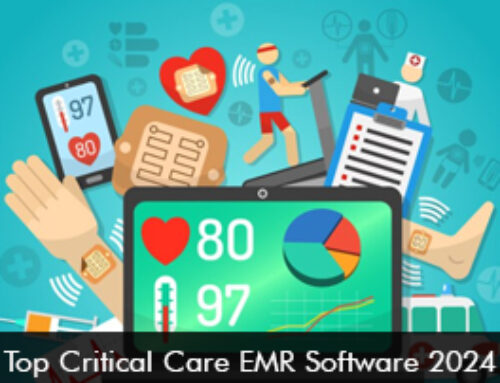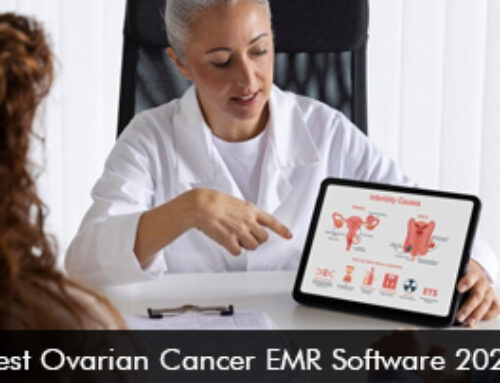Practice Fusion and athenahealth are always top contenders when healthcare providers are choosing EMR software. But how do they square up in 2024? We compare both Electronic Medical Records (EMR) software so you can make an informed decision.
EMR Software User Interface and Ease of Use
A seamless and user-friendly interface is crucial for healthcare providers, as it directly impacts workflow efficiency. Practice Fusion has long been praised for its intuitive design and straightforward approach to managing patient records, appointments, and billing. Its clean and organized layout makes it easy for users to navigate, reducing the learning curve for new practitioners.
On the other hand, athenahealth is recognized for its user-centric design, prioritizing simplicity without compromising functionality. The platform’s dashboard offers a unified view of patient data, scheduling, and billing, enhancing overall user experience. The emphasis on a clean and modern interface in athenahealth contributes to a more intuitive workflow for healthcare professionals.
Customization and Flexibility
One of the critical aspects of EMR software is its adaptability to diverse medical practices. Practice Fusion stands out with its high level of customization, allowing healthcare providers to tailor the system to their specific needs. This flexibility ensures that practices of varying sizes and specialties can integrate the software seamlessly into their existing workflows.
athenahealth, too, provides a considerable degree of customization. The platform is designed to accommodate the unique requirements of different medical specialties. Its modular approach allows practitioners to choose the features and functionalities that align with their practice.
EMR Software Integration Capabilities
In the interconnected world of healthcare, the ability to integrate with other systems and third-party applications is crucial. Practice Fusion has garnered acclaim for its integration capabilities, enabling smooth collaboration with labs, pharmacies, and other healthcare entities. This interconnectedness enhances communication and data sharing, streamlining the overall patient care process.
athenahealth also boasts robust integration capabilities, allowing seamless communication with various healthcare stakeholders. The platform’s open architecture facilitates integration with third-party applications, promoting interoperability. This ensures that healthcare providers can leverage the latest technologies to enhance patient care.
Billing and Revenue Cycle Management
Efficient billing and revenue cycle management are integral components of any successful medical practice. Practice Fusion offers comprehensive billing features, including electronic claims submission and real-time eligibility verification. The platform’s billing module is designed to minimize errors and accelerate the reimbursement process, improving the financial health of practices.
athenahealth, known for its focus on revenue cycle management, goes a step further by offering advanced analytics and reporting tools. These tools empower healthcare providers to gain insights into their financial performance, identify areas for improvement, and optimize revenue generation. The platform’s emphasis on end-to-end revenue cycle management sets it apart in the competitive EMR landscape.
EMR Software Regulatory Compliance and Security
Both Practice Fusion and athenahealth prioritize the protection of patient information. Practice Fusion adheres to industry standards and regulations, implementing robust security measures to safeguard patient data. The platform also provides tools to assist healthcare providers in meeting regulatory requirements, ensuring a secure and compliant environment.
athenahealth, with its focus on healthcare compliance, goes the extra mile in helping practices navigate the complex landscape of regulations. The platform stays updated with the latest compliance standards. This provides healthcare providers with the confidence that their data is secure and that they are meeting regulatory obligations.
Customer Support and Training
Exceptional customer support and comprehensive training resources are crucial for healthcare providers adopting new EMR software. Practice Fusion is known for its responsive customer support and offers a range of training materials, including tutorials and webinars. The platform’s commitment to user education contributes to a smoother onboarding process for new users.
athenahealth’s customer support is equally acclaimed, with a dedicated team to assist healthcare providers with any issues or queries. The platform provides extensive training resources, including online training modules and in-person sessions. This ensures that users are well-equipped to maximize the benefits of the system.
EMR Software Cost Considerations
Cost is a significant factor for healthcare practices of all sizes, so understanding pricing models of EMR systems is crucial. Practice Fusion has a transparent pricing model, typically involving a subscription fee based on the number of providers and features. This straightforward approach helps practices budget effectively and avoids hidden costs.
athenahealth follows a pricing model that may include setup fees and additional costs based on the chosen modules. While the pricing structure seems complex, it’s designed to offer a tailored solution for the specific needs of each practice.
Choosing the Right EMR Software for 2024
Practice Fusion and athenahealth continue to be stalwarts of EMR software, offering robust solutions for healthcare providers. The choice between the two ultimately depends on the unique needs and preferences of the medical practice in question.
Practice Fusion’s intuitive interface, high level of customization, and transparent pricing make it an attractive option for practices. On the other hand, athenahealth’s emphasis on revenue cycle management, advanced analytics, and interoperability positions it as a comprehensive solution.
By weighing the features, advantages, and drawbacks of Practice Fusion and athenahealth, practitioners can make an informed decision that aligns with their vision for delivering high-quality, efficient, and patient-centric care.







